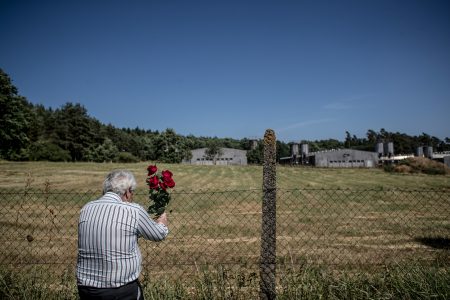
On 2 August we commemorated the Roma and Sinti victims and survivors of Nazi persecution, a day for Europe and the world to reflect on, an overlooked and underrepresented atrocity – a chapter erased or omitted from too many world records, history books, and lessons writes Kathrin Meyer.
Dr Kathrin Meyer is Secretary General of the International Holocaust Remembrance Alliance
The story of Stanislaw Stankiewicz is a compelling reminder of this chapter. Born in 1943 in Nazi-occupied Poland, Stanisław grew up enveloped in uncertainty. “Everything my family experienced was defined by fear and the question of whether we would still be alive tomorrow,” he recalls. Of Stanisław’s 108 extended family members, only eight survived the genocide.
His family was forced into labour on a farm, where small moments often meant the difference between life and death. Stanisław vividly recalls the story of his father hiding to eat a piece of bread in the garden when the landowner’s son appeared. Fearing betrayal, his father offered to share the bread, but the boy refused and ran away. Instead of reporting him, the boy felt sympathy and began secretly providing food for the family. Stanisław believes this act of compassion also influenced the landowner’s decision not to deport his family when the Nazis demanded it.
He went on to become Chairman of the Central Council of Polish Roma, but his story, like so many others, remains largely untold. This is partly due to the limited acknowledgment and research of this genocide. In many European countries, the genocide of the Roma is not taught in schools and 2 August is not recognized as a day of remembrance.
This neglect is not just an oversight; it is a profound injustice that reflects the general discrimination that Roma communities face today across the European Union. The lack of education about Roma history contributes to acts of anti-Roma discrimination. A 2023 Eurobarometer survey reveals that 65% of respondents report widespread discrimination against Roma in their countries.
I urge more countries, particularly in the European Union, to officially recognise 2 August as a day to commemorate the genocide of the Roma and call on them to include the history of this genocide in their educational curricula. Educating the next generation helps us to erode deep-seated prejudices and nurture an environment of respect and equality.
The duty to uphold the truth falls not only to policymakers and educators but to each of us as individuals. The #ProtectTheFacts campaign actively combats the denial and distortion of the genocide of the Roma. Led by the IHRA, the Council of Europe, the European Commission, OSCE’s Office for Democracy and Human Rights, the United Nations, and UNESCO, it strives to ensure that the memories of those who suffered are honoured and the facts of their stories are preserved. By acknowledging the genocide and protecting the facts, we commit to fighting hatred and discrimination.
Many of Stanisław’s family – and countless other Roma families – did not survive to see a future beyond the Nazi persecution, but it is not too late for us to prioritise making Roma communities feel safe and respected today.
We honour the victims and survivors by ensuring that their history is not an afterthought, but an integral part of our collective memory and future.
Take the Survey at https://survey.energynewsbeat.com/




